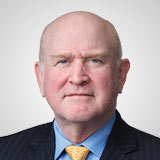Gavin Graham, contributing editor to The Income Investor, has a long career in money management and international securities, holding senior positions in financial organizations in London, Hong Kong, and Toronto; here, he looks at two London-based plays in the food and beverage sectors.
Diageo (DEO) is the largest spirits company in the world with such market leading brands such as Johnnie Walker scotch, Smirnoff vodka, Captain Morgan rum, Gordon’s gin, and Guinness stout.
In the six months to Dec. 31, 2020, Diageo saw an encouraging return to growth in revenues of 1% at the organic level, although the headline net sales figure saw a drop of 4.5%, to £6.9 billion, offset by unfavorable exchange rate moves as sterling strengthened.
Reported operating profit was down 8.3%, to £2.2 billion, as organic profit fell 3.4%. Contributing factors were changes in product mix and the combined effect of the pandemic on travel retail and the closure of many bars during the lockdowns.
North America, Diageo’s largest market, saw organic sales up a very strong 12.3%, driven by market share gains, positive changes in product mix, and resilient consumer demand, offsetting declines in other regions, except Africa, which was flat.
While pre-exceptional earnings per share (EPS) fell 12.8%, to £0.699, net cash from operating activities rose £0.7 billion, to £2 billion, and free cash flow rose £0.8 billion, to £1.8 billion reflecting lower tax payments and working capital requirements.
The semi-annual dividend was raised 2%, to £0.2796, giving a yield of 2.6%. CEO Ivan Menezes noted that Diageo pivoted to the sales channels most relevant to consumers and delivered improved performance compared with the six months to June 30, 2020.
He expected that “margins (would) improve as the On-trade (i.e., bars and restaurants) and Travel Retail (duty-free) recover in the second half (to June 30, 2021).”
Diageo remains a Buy for its exposure to the growing middle class in emerging markets and consumers trading up in developed markets, helped by the recovery in travel and bar sales as lockdowns ease.
Unilever (UL), the Anglo-Dutch food and consumer products company, derives over 60% of its sales from emerging and frontier markets, with brands that include Hellman’s, Ben and Jerry’s ice cream, and Dove shampoo.
It moved its corporate headquarters to the U.K., ending the 80-year dual-listing structure created when Lever Brothers in the U.K. merged with United Margarine in the Netherlands. This has made it the largest company by market capitalization in the U.K. market on occasion in the last six months.
Revenue fell 2.4% to €50.7 billion in the year to Dec. 31, 2020, although organic sales grew 1.9% on 1.6% volume and 0.3% price effects. Operating profit fell 4.6%, to €8.3 billion.
Underlying operating profit fell 5.8%, to €9.4 billion, but actually increased 0.7% at constant exchange rates while underlying earnings per share decreased 2.4%, to €2.48 per share, but again rose 4.1% at constant exchange rates.
Diluted EPS was off 0.9%, at €2.12. Free cash flow was up by €1.5 billion, to €7.7 billion. The dividend was increased by 4%, to €0.4268 per share, giving a yield of 3.3%.










